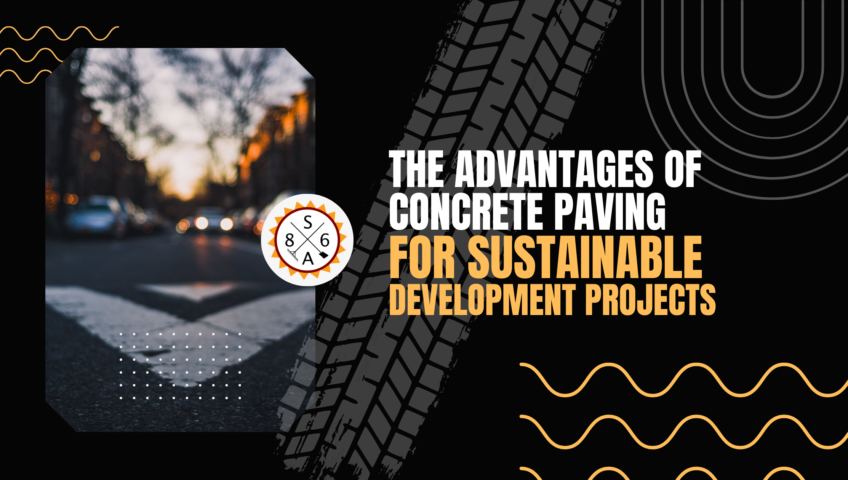
The Advantages of Concrete Paving for Sustainable Development Projects
In the realm of sustainable development, every material choice plays a pivotal role in shaping a greener future. When it comes to paving solutions, concrete emerges as a standout performer, offering a plethora of advantages that align seamlessly with sustainable development goals. Concrete, when utilized by experienced concrete contractors from reputable companies such as those in Denver, can significantly contribute to the creation of environmentally-friendly and enduring infrastructure.
Durability and Longevity
One of the foremost advantages of opting for concrete paving in sustainable development projects is its exceptional durability and longevity. Concrete, when properly mixed and installed by seasoned concrete contractors, possesses the strength to withstand heavy loads, harsh weather conditions, and the test of time. This durability ensures that the infrastructure lasts for decades, minimizing the need for frequent repairs and replacements. This longevity reduces the overall environmental impact by decreasing the demand for additional resources and energy required for reconstruction.
Low Environmental Impact of Concrete Production
Concrete, when sourced from environmentally conscious concrete companies, can be produced with a reduced carbon footprint. The production of concrete typically involves locally available raw materials, reducing the transportation-related emissions associated with long-distance transportation. Furthermore, advancements in concrete technology have led to the development of eco-friendly mixes, incorporating recycled materials such as fly ash and slag, which would otherwise end up in landfills.
Energy Efficiency in Construction
Concrete paving offers energy efficiency during the construction phase. The quick curing time of concrete means that roads, walkways, and other infrastructure can be put into service sooner, minimizing disruption and reducing the need for prolonged construction activities. This not only saves energy but also contributes to a more efficient and sustainable construction process.
Reflectivity for Energy Conservation
Concrete’s reflective properties contribute to energy conservation, particularly in urban environments. Concrete pavements, when light in color, reflect sunlight, reducing the urban heat island effect. This phenomenon helps in maintaining lower temperatures in densely populated areas, thereby decreasing the energy required for cooling buildings and improving overall energy efficiency.
Low Maintenance Requirements
Concrete paving demands minimal maintenance compared to alternative materials. This characteristic is a key factor in sustainable development, as it reduces the need for regular repairs and maintenance activities that often involve resource-intensive processes. The longevity of concrete pavements, coupled with their low maintenance requirements, translates to lower overall environmental impact throughout the life cycle of the infrastructure.
Water Permeability and Environmental Conservation
Concrete pavements can be designed to be permeable, allowing water to penetrate through the surface and recharge the groundwater table. This feature aids in natural water conservation, mitigating the adverse effects of impermeable surfaces in urban areas. By choosing permeable concrete solutions, sustainable development projects can contribute to better stormwater management and overall environmental health.
In conclusion, the advantages of concrete paving for sustainable development projects are multifaceted. The durability, low environmental impact in production, energy efficiency, reflectivity, low maintenance requirements, and water permeability make concrete a commendable choice for environmentally conscious development initiatives. When executed by skilled concrete contractors from reputable companies, such as those in Denver, concrete paving becomes a cornerstone in the construction of a greener and more sustainable future.
